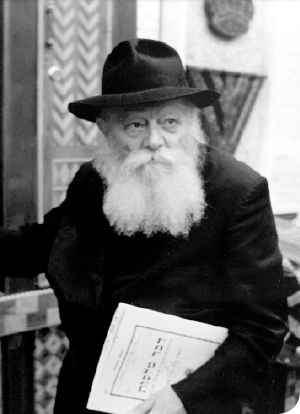Since ‘Even the sinners of the Jewish people are filled with Mitzvos like a pomegranate [is filled with seeds],’ all Jews have a portion in Olam HaBa, in T’chiyas HaMeisim – with the exception of those enumerated by the Sages… * The Rebbe MH”M responds to seeming contradictions regarding the ultimate stage in Creation.
Translated by Boruch Merkur
 In correspondence with the Rebbe, Reb Dovid Stockhammer of Newark NJ asks about seeming contradictions regarding the reward of Olam HaBa, the future era of redemption known as the World to Come:
In correspondence with the Rebbe, Reb Dovid Stockhammer of Newark NJ asks about seeming contradictions regarding the reward of Olam HaBa, the future era of redemption known as the World to Come:
I have heard that according to Chassidus, every single Jew, no matter who he is, even one who is a lifelong sinner, rachmana litzlan, has hope [to merit Olam HaBa, the World to Come]. Ultimately – be it of one’s own volition or by being compelled from Above, in his lifetime or after he is deceased – each Jew rises from the gates of impurity he was immersed in and passes through many stages of purification and cleansing until he cleaves to and is unified with his Source and Root, the infinite Light of G-d, blessed be He.
At first glance, hearing this Chassidic perspective is positively confounding, as there are several Biblical passages as well as sayings of our Sages that contradict it.
***
In response to this question, the Rebbe writes:
The notion of the universal redemption of Jews is founded upon Chassidic teachings from several sources, including the following passage from Section 1 of the Chassidic discourse (maamer) beginning with the words “Ki Yish’alcha Bincha” of the year 5700:
“‘All Jews have a portion in Olam HaBa, the World to Come.’ Here ‘Olam HaBa’ refers to Olam HaT’chiya, the Era of the Resurrection of the Dead … Olam HaT’chiya differs from Gan Eden [in terms of how readily admission is attained]. There are several prerequisites for ascending to Gan Eden, as expressed in the verse: ‘Who shall ascend the Mountain of G-d … ? One with clean hands and a pure heart, etc.’ (T’hillim 24:3-4). Indeed, [even within Gan Eden, there are levels of admission], some souls only merit the Lower Gan Eden, not the Higher Gan Eden … The revelations of Gan Eden are reserved for souls, not corporeal beings. Regarding Olam HaT’chiya, on the other hand, which refers to the Era of the Resurrection of the Dead, the Sages said, ‘All Jewish people have a portion in Olam HaBa.’ All Jews will attain the revelation of T’chiyas HaMeisim, the Resurrection of the Dead, notwithstanding that it is awarded only after a reckoning from Above. In fact, this determination is subject to a much higher degree of scrutiny than what is required for the revelations of Gan Eden …. And the revelation of T’chiyas HaMeisim is experienced specifically by souls within bodies.”
The latter passage is founded on the teaching of the Alter Rebbe in his maamer beginning with the words, “L’Havin Biur Inyan HaAvos Hein Hein HaMerkava” (Torah Ohr Parshas Yisro, Sections 3-4): “The concept of Olam HaBa, refers to both Gan Eden and T’chiyas HaMeisim. It is elucidated in the Mefarshim though, as well as in Ramban’s Shaar HaG’mul, that the principle reward of Olam HaBa is experienced in the Era of T’chiyas HaMeisim, for T’chiyas HaMeisim is greater than [even] the Higher Gan Eden. Souls reside in Gan Eden without bodies … but in T’chiyas HaMeisim they shall rise within their bodies [illustrating how their resurrection is a further elevation, greater than Gan Eden] … Now, since ‘Even the sinners of the Jewish people are filled with Mitzvos like a pomegranate [is filled with seeds],’ all Jews have a portion in Olam HaBa, in T’chiyas HaMeisim – with the exception of those enumerated by the Sages.”
Also see Likkutei Torah Parshas Shlach, the first maamer beginning with the words “Ani Hashem Elokecha,” beg., as well as the second maamer of the same title, Section 3, end.
Since some maamarim, at first glance, contradict what has been said above, I will quote those sayings of our Sages that, in my humble opinion, serve as the foundation to these teachings of Chassidus, elucidate them, and answer the difficulties these seeming contradictions pose.
(To be continued be”H)
(From a letter dated Monday, the 16th of Tammuz 5703; Igros Kodesh Vol. 1, pg. 141 ff.)